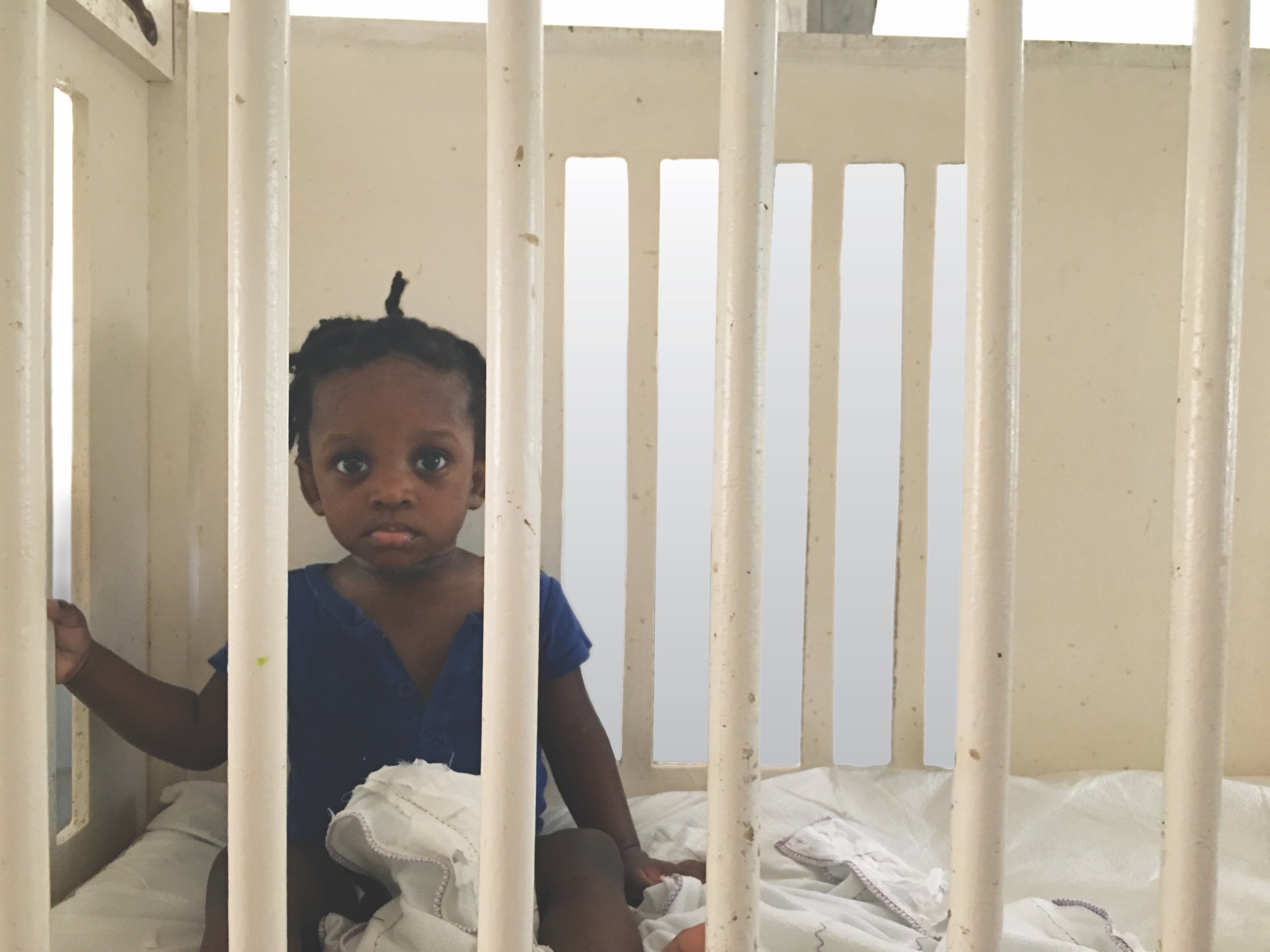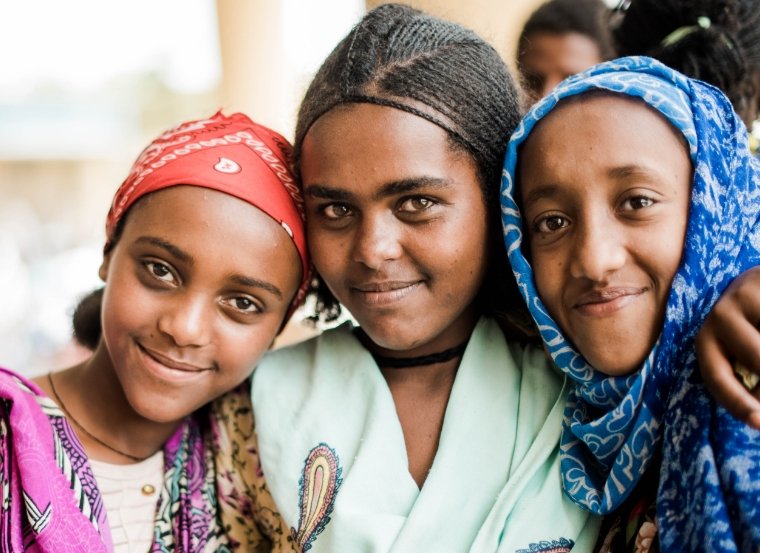Why Disrupt Trauma?
When hurt people hurt children, trauma thrives.
Abuse. Trafficking. Poverty. Corruption. Even natural disasters. The resulting traumas from systemic problems like these ripple through generations and tear children from families.
When healed people heal children, trauma is disrupted.
But together, we can disrupt trauma and break its cycles. Together, we can unlock new futures for children and families and empty institutions for good. All it takes is for each of us to stand up for this child now and to do what we can so that each child can experience new possibilities.

The problem has a name—TRAUMA. And it’s complex.
Hurting the one and the many.
CHILDHOOD TRAUMA hurts the one.
-
Neglect
Abandonment
Physical, sexual, or psychological abuse
Family violence
Drug or alcohol exposure
Early hospitalization
-
Behavior—75% of people who have depression experienced early trauma and are 10x more likely to use drugs.
Brain—Children living in an institution have an average IQ of 20 points lower than peers who reside in a family environment.
Body—If left untreated, children with high Adverse Childhood Experience scores (ACEs) face a 20-year decrease in life expectancy and are 390% more likely to have chronic heart disease.
Beliefs—Without intervention, children with high ACEs are 12x more likely to attempt suicide.
Biology—The effects of trauma span generations. Through epigenetics, trauma is passed down from parent to child.

As CHILDHOOD TRAUMA grows, it separates children from the love of their family.
It is a disheartening truth that many families, caught in the relentless cycles of generational trauma—where hurt people continue to hurt people—stand on the precipice of desperation. This anguish not only consumes their present but threatens to sever the sacred bonds of family, pushing their children into the grips of child welfare systems and institutions that often stand as cold monuments to isolation.
SYSTEMIC TRAUMA hurts the many.
-
Poverty
Corruption
Trafficking
War
Homelessness
Community violence
Institutionalization
Multiple foster care placements
-
In far too many corners of our world, vulnerable children are confined within stark institutions where their cradles, chillingly reminiscent of cages, stand as silent caretakers. These precious children of God, each a unique and irreplaceable treasure, languish without the tender touch of love and the soothing whisper of comfort. They are defined as a number in a system instead of receiving the human dignity and recognition of hearing their own name.
Deprived of human touch, education, therapies, and vital medical care, they are denied the nurturing soil to root, grow, and flourish. With no plan or promise for a future beyond the walls of an institution, they risk being lost to the notion that they will never again experience any family’s love or the opportunity to lead a successful, independent life.
As SYSTEMIC TRAUMA grows, it impacts millions of children worldwide.
Systemic trauma has torn 5.4 million children from their families to suffer in institutions and puts millions more at risk of this same fate.
Beyond the immediate tragedy of children living in institutions lies a broader, deeper crisis, one where trauma spreads its roots far and wide, placing millions more children at risk of facing the same heart-wrenching fate.
That’s why we’re determined to empty institutions for good.
Frequently Asked Questions about Trauma (FAQs)
After decades of hands-on experience with vulnerable children and families around the world, we don’t just understand the complexities, systemic failures, and multi-generational effects of trauma; through God’s grace and intervention, we have discovered how to dismantle it once and for all.
-
"Trauma" can mean different things to different people. So let's begin with something a little more basic: hurt.
Childhood trauma is caused by any stressful experience that overwhelms a person's sense of safety and leaves them feeling alone with the overwhelm.
Abuse. Neglect. Natural disasters. War. Loss.
Research shows that when a child experiences these profound deep hurts, it shatters their everything—their mental health, physical development, emotional regulation, family relationships, and future potential.
In trauma’s wake, a person is left hurting, confused, and often feeling alone. This hurt can be felt for decades through epigenetics (yes, trauma is carried from generation to generation).
Trauma grows. Fear grows. Loneliness grows. Heartbreak grows.
This is how the cycles begin. Hurt children grow into hurt adults. Carrying wounds that never healed, these hurt individuals, unknowingly pass down pain to their family, friends, and community, continuing the cycle of trauma.
In other words, hurt people, hurting people.
-
When we say systemic trauma, we mean the deep, systemic institutionalization of trauma that lies at the heart of a global crisis where millions of children are institutionalized or separated from their family each year.
This crisis, brought to you by systemic trauma, is not a series of isolated incidents but a widespread epidemic of hurt people hurting people, fueled by deeply rooted systemic problems such as lack of education and resources, rampant corruption, poverty, and misguided policies.
All of these factors together contribute to a reality where an overwhelming number of children are left utterly alone, rejected, deeply wounded, and without hope.
-
-
Understanding trauma is essential, but we believe putting that knowledge into action is when real change for children begins. Decades of trauma, attachment, and neuroscience research inform our work, but the daily practice of trauma-informed care is the real anchor of all we do.

Uncover how we’re emptying institutions for good.
Join the Heal.
Raise your voice. Speak up about childhood trauma. Find your own healing. Help others find theirs.
By submitting, I confirm that I am 18+ years old and agree to TDC’s Terms of Service and Privacy Policy, located in the Privacy Center. I agree to receive recurring automated text messages at the phone number provided. Msg and data rates may apply. Msg frequency varies. You can opt out anytime. Reply HELP for help and STOP to unsubscribe.
*"Discover exactly how complex trauma affects a child’s everything" 1. Childhood Trauma and Its Relation to Chronic Depression in Adulthood, Alexa Negele, Johannes Kaufhold, Lisa Kallenbach, Marianne Leuzinger-Bohleber | 2. IQ of Children Growing Up in Children’s Homes: A Meta-Analysis on IQ Delays in Orphanages, Marinus H. van IJzendoorn, Maartje P C M Luijk, Femmie Juffer | 3. Adverse Childhood Experiences, The Burke Foundation | 4. The Relationship between Childhood Trauma and Suicidal Ideation: Role of Maltreatment and Potential Mediators, Yong-Chun Bahk, Seon-Kyeong Jang, Kee-Hong Choi, Seung-Hwan Lee | 5. Intergenerational Transmission of Trauma Effects: Putative Role of Epigenetic Mechanisms, Rachel Yehuda, Amy Lehrner 







